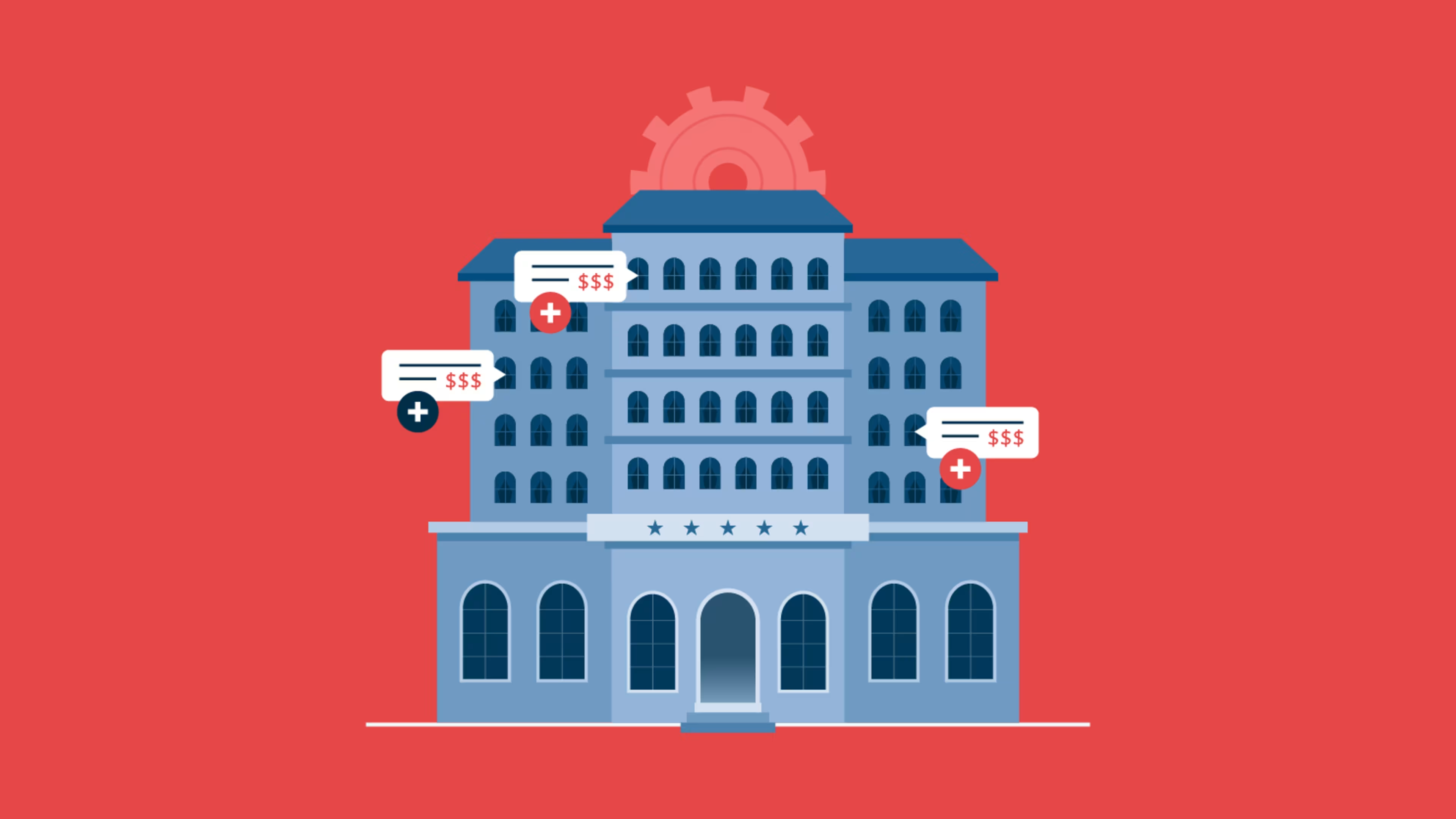Create a seamless hotel experience with your hotel guests with technology.
The number one goal of every hotelier is to create a comfortable and enjoyable experience for all their guests. At the same time, today's guests expect technology to streamline their stay. From online research to mobile check-in and check-out, hotel technology helps shape the guest experience.
But what technology is worth investing in and how can you measure the value of investing in new tech for your hotel? This guide will show you how leading hotels leverage technology and the top ways it helps create compelling guest stays.
How is technology changing the guest experience?
From online booking and check-in to mobile apps that streamline the guest experience, technology has reshaped how hotels reach customers. The added convenience and flexibility helps attract and retain customers so they can continue to book with them again. At the same time, hotels are also competing with online travel agencies that offer many of the same technological perks.
The modern guest experience offers less hassle with easier booking and advanced in-property technology. For example, there are hotel management software for keyless entry and in-room smart TVs. In addition, cutting-edge technology, such as AI-based concierges, lets hotels offer a highly personalized experience. However, hotel management must decide which technology solutions have the potential to improve guest stays and increase operational efficiency.
How technology is helping hotels to operate more efficiently
Automation is the key technological feature that helps hotels operate more efficiently. For instance, automation can help streamline check-ins and check-outs via mobile apps or lobby kiosks. Hospitality property management software improves efficiency by enabling you to manage bookings, inventory, and guest preferences. It also helps optimize room allocation and personalize the guest experience.
Other technology is also helping hotels operate more efficiently. For example, guest apps can streamline communication with staff. Smart thermostats monitor energy consumption, cutting waste and lowering costs.
What are the benefits of using technology in the hotel industry?
When considering any hotel technology, prioritize its potential for improving the guest experience. Four main benefits can be achieved by using technology in the hotel industry:
Improved efficiency. Technology can automate processes such as booking management and credit card invoicing. This allows hotel staff to focus on more intimate interactions and provide a superior guest experience.
Energy savings. Smart thermostats and occupancy sensors lower energy consumption. They also conserve your money on utility bills.
Competitive edge. Investing in the right technology can help differentiate your hotel in a competitive market and attract tech-savvy travelers who are seeking simplified experiences.
Data-driven insights. Apps and in-room smart devices provide data that can help predict guest behavior. This insight helps you serve customers better.
How to choose the right hotel technology for your business
Choosing the right hotel technology requires understanding your business needs and goals. Understanding operational pain points helps identify solutions to those issues: guest experience, back-end processes, or sustainability.
It is also important to ensure your chosen technology is compatible with existing systems and can scale with your hotel. Focusing on intuitive interfaces and excellent customer service can also help ensure successful implementation and ongoing maintenance.
/ Read more
Before you go all in on a new software purchase, check out 6 Steps for a Successful Software Purchase to help you navigate the software-buying process.
What are the latest trends in hotel technology?
Mobile check-in and check-out
Mobile check-in and check-out transform the guest experience with integrated reservations and mobile apps. It also allows guests to skip queues at front desks, choose room preferences, and receive digital room keys for easy arrival and departure. This convenience improves the guest experience, reducing lobby wait times and freeing hotel staff.
Keyless entry
Guests can use their smartphones as room keys, while keyless entry systems provide convenience and increased security. This hotel technology simplifies check-ins, increases guest autonomy, and increases security by removing physical keycards. It provides a seamless, contactless guest experience that meets modern guest expectations and creates a technologically sophisticated hotel environment.
Smart room controls
Smart room controls let guests control their space and adjust lighting, temperature, and amenities through intuitive interfaces or voice commands. This technology improves comfort and individual preferences and demonstrates the hotel's commitment to modern, personalized amenities that enhance guest experience and satisfaction.
In-room entertainment
In-room entertainment technology includes streaming services, interactive systems, and high-definition displays for various guest viewing tastes. This feature transforms downtime into entertainment, relaxation, and a memorable stay that guests will remember forever.
Hotel review websites
Hotel reviews offer feedback channels where guests can share their experiences and impressions. We performed a meta-analysis of several hotel industry surveys and found that 45% of travelers ranked customer reviews as "very important" to their decision-making process. They browse the reviews to help gauge guest satisfaction levels, proactively identify issues, and quickly learn about the hotel's services. By acting on this feedback, hoteliers can enhance their offerings and deliver a more positive, personalized experience for future guests.
/ Read more
Did you know you can try before you buy when it comes to product demos? Get the most out of live software demos by following these tips in The Ultimate Guide to Getting the Most out of Product Demos.
Property management systems
Property management systems simplify hotel operations by intelligently handling reservations, inventory, and finances. This technology ensures faster check-ins, room allocations, and service coordination while minimizing wait times and errors. By streamlining behind-the-scenes tasks, hotels can better serve guest needs and increase guest satisfaction.
Customer relationship management systems
CRM (customer relationship management) software allows hotels to monitor guest interactions, preferences, and behaviors for personalized services and experiences. A better understanding of guest needs enables hotels to anticipate preferences, provide targeted recommendations, and deliver more personalized service, increasing guest loyalty and ultimately enhancing their stay.
Marketing automation software
Hoteliers can use marketing automation software to send customized offers and messages to guests. This technology also provides the backbone for loyalty programs which helps hotels compete with online travel agencies. In fact, there is an 87% adoption rate of loyalty features from direct hotel brands, which is 31% higher than online travel agencies loyalty adoption rate.[1] These programs help hotel management tailor offers based on known guest preferences, improving engagement and driving bookings.
Note: AI has yet to see wide adoption in the hotel industry. However, these technological enchantments remain popular with hoteliers and customers.
Hotel technology is the key to efficiency and guest satisfaction
Competitiveness in the hospitality sector is high as customers face a sea of choices. As many hoteliers have discovered, technology is the secret to building a great hotel experience with a competitive advantage. The operational efficiency of today's hotel technology is a bonus consisting of streamlined operations and lower costs. Investing in tech solutions that provide this mix of efficiency and guest satisfaction is the key to successful hotel operations today.
To learn more about the technology powering today's hotels, check out these other Capterra resources:

